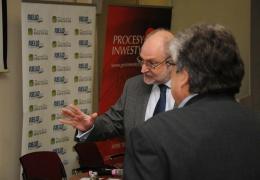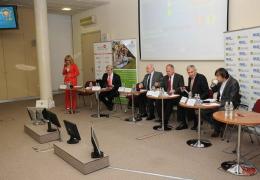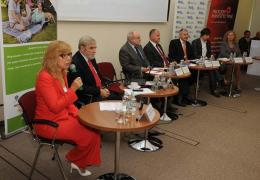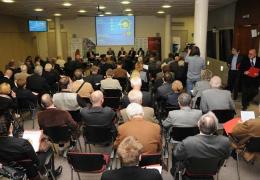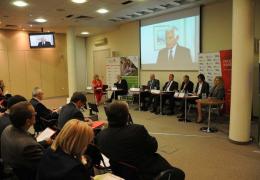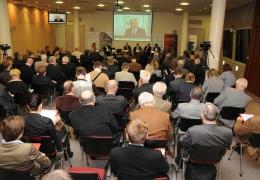Invitation for the debate
Microgeneration as a pillar of low-emission economy
5th November 2012 (Friday), 11.00 am
Seat of Polityka , Słupecka 6, Warsaw
The model based on mini and micro sources of 100MW - 5MW - 50kW is already well known. Less widespread and popular is the model based on pico sources of less than 50 kW. It constitutes a very crucial element of so called prosumer energy generation which can deliver at least (estimates of possible potential):
- 1500 MW – pico windmills ~ 1- 4 kW
- 1500 MW - pico photovoltaic cells ~ 1 -5 kW
- 1500 MW - pico fuel cells and gas and biogas stirling engines ~ 1-2 kW
Together they can sum up to 4500 MW of power, 1/3 out of which is stable power, more than one nuclear block. While stabilizing the system one could also add gas heat pumps and heat pumps powered by energy from RES. The technology of today allows for such solutions, soon they will be also economically effective. Even today one could estimate prices for renewable energy after 2014:
- Wind - 880 €/kW (after 2012)
- Sun - 1 400 €/kW (after 2014)
- Earth (gas) - 1 500 €/kW (after 2014)
In order to facilitate those changes proper legislation is required. Partially it will be regulated by the RES Act. According to current regulations every owner of a pico windmill who wants to supply the system with energy is obliged to register his business activity and pay social security charges ca. 800 PLN per month. In practice it would mean that in order for the windmill to pay back it would need to work for over 100 hours/day. In addition it has to meat all requirements and obligations of a windmills farm. Such conditions do not allow for development of prosumer energy generation model. Meanwhile simple solutions would seem best in this respect – it would be enough for such small facilities to be technically approved and verified by respective office. The draft of new RES Act solves this problems but only with respect to RES. It does not include CHP micro installations (it is necessary to create separate regulations for its connection to the system and support solutions for exchange of heating facilities for micro CHP) Moreover, prosumer energy generation will not become a reality without intelligent networks and smart grid. Especially that investors are only willing to invest in prosumer options as long as they include smart grid. For this reason it is crucial to elaborate proposals on support system for the prosumer model that would be presented to the Polish government. It is inevitable if Poland wants to balance its energy demand till 2016. The proposal should also include suggestions on allocation of funds from EU-ETS.
Topics for the debate:
- Dispersed cogeneration sources as an element of smart grid
- Intelligent networks – support systems
- Pragmatic model of gas and biogas microgeneration development
- Support systems for low-emission solutions including RES, hybrid systems combining RES with LPG, low-emission fuels, CHP and energy efficiency
- How do others do it ? (study cases from Germany, Great Britian, Italy etc.)
- Prosumer energy generation (picogeneration) and its impact on domestic development (employment, innovations, GDP, etc.)
- Rural areas as element of sustainable domestic energy system
Speakers invited to take part in the debate:
- Tomasz Dąbrowski, Director of Energy Department , Ministry of Economy
- Janusz Pilitowski, Director of Renewable Energy Department, Ministry of Economy
- Marek Woszczyk, President of the Energy Regulatory Office
- Jan Rączka, PhD, Chairman of the Board of the National Fund for Environmental Protection and Water Management
- Sylwester Śmigiel, Chairman of the Board, Gaspol, Future for Rural Energy in Europe
- Radosław Dudziński – Vice Chairman of the Board - Trade, PGNiG
- prof. Krzysztof Żmijewski, Secretary General of the Public Board for Development of Low –Emission Economy
We would be delighted if you could come

